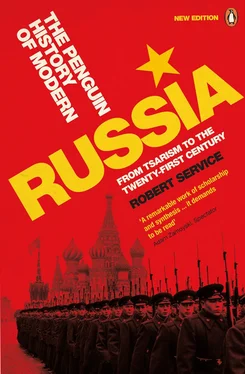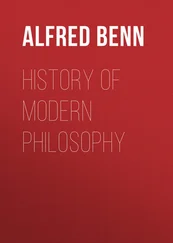But Nicholas also had reason to doubt that the Duma would have been any better at solving the difficulties of the Russian Empire. Whoever was to rule Russia would face enormous tasks in transforming its economic, cultural and administrative arrangements if it was not to fall victim to rival Great Powers. The growth in industrial capacity was encouraging; the creation of an indigenous base of research and development was less so. Agriculture was changing only at a slow pace. And the social consequences of the transformation in town and countryside were tremendous. Even the economic successes caused problems. High expectations were generated by the increased knowledge about the West among not only the intelligentsia but also the workers. The alienated segment of society grew in number and hostility.
Yet the empire suffered as much from traditionalism as from modernity. For example, the possession of land in the village commune or the ability to return to the village for assistance was a powerful factor in enabling Russian workers to go on strike. Russian and Ukrainian peasants identified more with their village than with any imperial, dynastic or national idea. Furthermore, those inhabitants of the empire who had developed a national consciousness, such as the Poles, were deeply discontented at their treatment and would always cause trouble. The religious variety of the empire only added to the regime’s problems, problems which were likely to increase as urbanization and education proceeded.
Yet if the empire was ever to fall apart, it would not even be clear to which area Russia might easily be confined. Russians lived everywhere in the Russian Empire. Large pockets of them existed in Baku, in Ukraine and in the Baltic provinces. Migrations of land-hungry Russian peasants had been encouraged by Stolypin, to Siberia and to Russia’s possessions in central Asia. No strict notion of ‘Russia’ was readily to hand, and the St Petersburg authorities had always inhibited investigation of this matter. The Russian-ruled region of Poland was described as ‘the Vistula provinces’; ‘Ukraine’, ‘Latvia’ and ‘Estonia’ did not appear as such on official maps. So where was Russia? This sprawling giant of a country was as big or as small as anyone liked to think of it as being. Few Russians would deny that it included Siberia. But westwards was it to include Ukraine and Belorussia? National demography and geography were extremely ill-defined, and the vagueness might in the wrong circumstances lead to violence.
After the turn of the century it was getting ever likelier that the wrong circumstances would occur. Social strife was continual. National resentments among the non-Russians were on the rise. Political opposition remained strident and determined. The monarchy was ever more widely regarded as an oppressive, obsolescent institution which failed to correspond to the country’s needs. Nicholas II had nearly been overthown in 1905. He had recovered his position, but the basic tensions in state and society had not been alleviated.
2
The Fall of the Romanovs
(1914–1917)
Yet it was not the internal but the external affairs of the empire that provided the definitive test of the dynasty. Clashes of interest with Japan, the United Kingdom and even France were settled peacefully; but rivalry with Austria-Hungary and Germany became ever more acute. In 1906 a diplomatic dispute between Germany and France over Morocco resulted in a French triumph that was acquired with Russian assistance. In the Balkans, the Russians themselves looked for France’s help. The snag was that neither Paris nor St Petersburg relished a war with Austria-Hungary and Germany. Consequently the Russian government, despite much huffing and puffing, did not go to war when the Austrians annexed Bosnia and Herzegovina in 1908. The existence of a Duma and of a broad press meant that newspaper readers appreciated that a diplomatic defeat had been administered to Nicholas II. Tsarism, which had paraded itself as the protector of Serbs and other Slavs, looked weak and ineffectual. It looked as if the monarchy was failing the country. 1
The diplomatic rivalries intensified. The British and the Germans did not abandon friendly relations with each other; but the Anglo-German naval race narrowed the options in Britain. Meanwhile Russia looked on nervously lest Germany might take advantage of the crumbling condition of the Ottoman Empire. Exports of Russian and Ukrainian grain from Odessa through the Straits of the Dardanelles were important to the empire’s balance of trade. In 1912 Bulgaria, Serbia and Greece declared war on the Ottoman Empire. In this instance Russia refused to back Serbian efforts to obtain access to a sea-port and a crisis in Russo-Austrian relations was avoided. Unfortunately this sensible decision was seen in Russia as yet another sign of Nicholas II’s weakness of will. Then a second Balkan war broke out in 1913. This time it occurred between Serbia and Bulgaria, the joint victors over the Turks. As a result Serbia obtained greater territory in Macedonia and appeared even more menacing to Austrian interests.
Russia’s relations worsened with Austria-Hungary and Germany even though Serbia had not been acting at Russian instigation. And on 28 June 1914 a fateful event occurred. This was the assassination of the heir to the Habsburg throne, Archduke Franz Ferdinand, by the Serbian nationalist Gavrilo Princip in Sarajevo, capital of recently-annexed Bosnia. Austria demanded humiliating concessions from the Serbian government, which it blamed for the Archduke’s death. Russia took Serbia’s side, and Germany supported Austria. Austria stood by her ultimatum and declared war on Serbia. Russia announced a general mobilization of her armies. Then Germany declared war on Russia and France. Britain showed solidarity with France and Russia by declaring war on Germany and Austria-Hungary.
Nobody had anticipated exactly this denouement. No one as yet had definite ideas about war aims. Nor was there much understanding that the fighting might drag on for years and bring down dynasties and whole social orders. The calculation in Russian ruling circles was that a short, victorious war would bind Imperial society more closely together. A few long-sighted politicians such as Pëtr Durnovo could see that war against Germany would lead to intolerable strains and might initiate the regime’s downfall. But such thoughts were not given a hearing in mid-1914. The Emperor’s sense of dynastic and imperial honour predominated. 2He might anyway have run into trouble if he had not taken up the challenge in the Balkans. The Octobrists and Kadets would have made a fuss in the Duma; even many socialists, whose Second International had opposed general war in Europe, felt that German pretensions should be resisted.
In the event their pressure did not need to be exerted: Nicholas II leapt into the darkness of the Great War without anyone pushing him. The decisions of the European powers had consequences of massive significance. The Great War produced the situation in Russia, Austria and Germany that shattered the Romanov, Habsburg and Hohenzollern monarchies. It also made possible the Bolshevik seizure of power in October 1917. Except for the Great War, Lenin would have remained an émigré theorist scribbling in Swiss libraries; and even if Nicholas II had been deposed in a peacetime transfer of power, the inception of a communist order would hardly have been likely. The first three years of this military conflict, however, caused an economic and political disorder so huge that Nicholas II had to abdicate in February 1917. The subsequent Provisional Government proved no less unequal to its tasks, and Lenin became the country’s ruler within months of tsarism’s overthrow.
But let us return to 1914. As massive military struggle commenced, the Russian steamroller moved effortlessly into East Prussia in mid-August. Victory over Germany was identified as the crucial war aim. Even so, Austria-Hungary was also a redoubtable enemy and the Russians had to mount an attack on the southern sector of what was becoming known in the rest of Europe as the Eastern front. Not since the Napoleonic wars had so many countries been directly involved in military conflict.
Читать дальше












